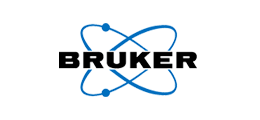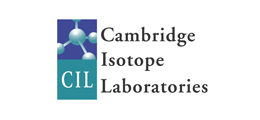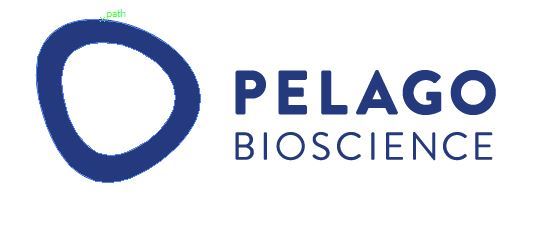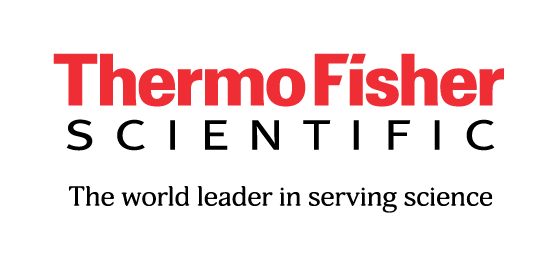Distinguished Achievement in Proteomic Sciences Award
The Distinguished Achievement in Proteomic Sciences Award recognizes a scientist for distinguished scientific achievements in the field of proteomic science.
(Sponsored by the Journal of Proteome Research - ACS Publications)
Kathryn K. Lilley
University of Cambridge, UK
Dr. Lilley provides leading efforts in developing technologies to enable the measurement of proteome dynamics in a high throughput manner in space and time during cellular processes. These include methods for defining dynamic protein and protein-complex sub-cellular location called “Localization of Organelle Proteins using Isotope Tagging” (LOPIT) and more recently, hyperLOPIT. Other methods developed by Dr. Lilley encompass mapping the location of translation of proteins and their control; Multi protein complexes with novel protein-protein interaction methods using Parallel Affinity Capture (iPAC); and Selective Proteomic Proximity Labeling using Tyramide (SPPLAT), a method that enables the identification of proteins in the immediate vicinity of a target membrane protein. These methods are underpinned by robust statistical and computational data analysis tools developed by Dr. Lilley in an open-source software environment. Applying these tools to model systems of drosophila, systematic analysis of how chemicals poison bacterial cells, and studying the RNA binding proteome, provide solid demonstrations of the methods developed by Dr. Lilley. Few proteomics researchers have contributed comprehensive methods to study proteomes as has Dr. Lilley, and we are proud of her distinguished achievements to date for the 2018 Distinguished achievement award.
Discovery in Proteomic Sciences Award
The Discovery in Proteomic Sciences Award recognizes a scientist for a single discovery in the field of proteomics.
(Sponsored by Journal of Proteomics - ELSEVIER BV)
Shared by two recipients
Ulrike Kusebauch
Institute for Systems Biology, USA
 Dr. Kusebauch, a native of Germany, has performed pioneering efforts for the establishment of the complete Human SRMAtlas. This achievement, led by Dr. Kusebauch and encompassing a large collaborative team from around the globe, provides a highly curated database of over 160,000 proteotypic peptide fragmentation spectra, their performance characteristics, selected reaction monitoring (SRM) assays, and a data-rich web based resource for the entire human proteome. This resource, generated on multiple mass spectrometry instruments, includes multiple fragmentation parameters and chromatographic traces for each peptide to enable any researcher to establish targeted identification and quantification of any accessible protein of the human proteome. This proteome-centric database is extensively integrated with bioinformatics knowledge bases and resources to provide an information rich resource for human proteome research. The SRMAtlas resource has extensive evidence of accessible assays for the human proteome covering proteins from all chromosomes with high quality quantitative SRM profiles to underpin HUPO HPP efforts in determining evidence for all proteins in the Human Proteome. This significant achievement provides a component of the MS Pillar substantiating the HPP efforts of HUPO and cuts across all other programs within HUPO (i.e., C-HPP, B/D-HPP etc.) making this resource also an achievement for HUPO. In addition, many biomarker evaluation projects worldwide have been accelerated with the use of this resource by providing readily available SRM assays, visual inspection of each assay, and assay parameter instrument files that are deployed in discovery and verification studies, ultimately fast tracking this process. She published this work in the journal Cell in 2016, and the SRMAtlas resource is freely available via the web. Dr. Kusebauch is a long-term HUPO member and active in proteomics for many years and these efforts by a young, talented female researcher being awarded is a demonstration of the talent in human proteome research that HUPO strives to support and recognize. The Human Proteome Organization congratulates Dr. Kusebauch, a worthy co-winner of the 2018 award for Discovery in Proteomics. Dr. Kusebauch, a native of Germany, has performed pioneering efforts for the establishment of the complete Human SRMAtlas. This achievement, led by Dr. Kusebauch and encompassing a large collaborative team from around the globe, provides a highly curated database of over 160,000 proteotypic peptide fragmentation spectra, their performance characteristics, selected reaction monitoring (SRM) assays, and a data-rich web based resource for the entire human proteome. This resource, generated on multiple mass spectrometry instruments, includes multiple fragmentation parameters and chromatographic traces for each peptide to enable any researcher to establish targeted identification and quantification of any accessible protein of the human proteome. This proteome-centric database is extensively integrated with bioinformatics knowledge bases and resources to provide an information rich resource for human proteome research. The SRMAtlas resource has extensive evidence of accessible assays for the human proteome covering proteins from all chromosomes with high quality quantitative SRM profiles to underpin HUPO HPP efforts in determining evidence for all proteins in the Human Proteome. This significant achievement provides a component of the MS Pillar substantiating the HPP efforts of HUPO and cuts across all other programs within HUPO (i.e., C-HPP, B/D-HPP etc.) making this resource also an achievement for HUPO. In addition, many biomarker evaluation projects worldwide have been accelerated with the use of this resource by providing readily available SRM assays, visual inspection of each assay, and assay parameter instrument files that are deployed in discovery and verification studies, ultimately fast tracking this process. She published this work in the journal Cell in 2016, and the SRMAtlas resource is freely available via the web. Dr. Kusebauch is a long-term HUPO member and active in proteomics for many years and these efforts by a young, talented female researcher being awarded is a demonstration of the talent in human proteome research that HUPO strives to support and recognize. The Human Proteome Organization congratulates Dr. Kusebauch, a worthy co-winner of the 2018 award for Discovery in Proteomics.
Joshua Coon
University of Wisconsin, USA
 Dr. Coon has been at the forefront of discovery research and the tools he has created have gained wide use around the world. His research program is to facilitate, expedite, and comprehensively analyze proteins and metabolites by innovating new mass spectrometric technologies and apply these techniques to advance biomedical research. Dr. Coon has contributed heavily to aspects of proteomics and metabolomics research developing next generation instrumentation and instrument methods, proteomics workflows, novel isotopic labeling quantitative approaches, and associated software development that has influenced many labs around the globe. Specifically, these include; the development electron transfer dissociation (ETD), which is a complementary nature of ion fragmentation, where ETD provides new avenues for analyzing intact proteins, post-translational modifications, and structural aspects of the proteome. Dr. Coon started his independent program in 2005, shortly after co-developing ETD with Prof. Don Hunt (U. Virginia) and John Syka (Thermo-Fisher) and went on to apply the ETD technique to a number of biological questions with great success. Dr. Coon was also awarded the American Society for Mass Spectrometry’s Biemann Medal in 2012 for this work. Other innovations supporting discovery research include: describing Parallel Reaction Monitoring (PRM), a method for a high resolution/accurate mass analyzer to permit the parallel detection of all target product ions in one, concerted high resolution mass analysis extending the specificity of SRM analysis; the GC-Orbitrap construction for identification of unknown metabolites from high-resolution, high mass accuracy discovery GC-MS experiments; novel proteome quantification methodology using metabolic labeling called NeuCode; and multi-omic data analysis and visualization to understand metabolism. We applaud the efforts of new HUPO member Dr. Coon, a well-deserved co-winner of the Discovery in Proteomics award for 2018. Dr. Coon has been at the forefront of discovery research and the tools he has created have gained wide use around the world. His research program is to facilitate, expedite, and comprehensively analyze proteins and metabolites by innovating new mass spectrometric technologies and apply these techniques to advance biomedical research. Dr. Coon has contributed heavily to aspects of proteomics and metabolomics research developing next generation instrumentation and instrument methods, proteomics workflows, novel isotopic labeling quantitative approaches, and associated software development that has influenced many labs around the globe. Specifically, these include; the development electron transfer dissociation (ETD), which is a complementary nature of ion fragmentation, where ETD provides new avenues for analyzing intact proteins, post-translational modifications, and structural aspects of the proteome. Dr. Coon started his independent program in 2005, shortly after co-developing ETD with Prof. Don Hunt (U. Virginia) and John Syka (Thermo-Fisher) and went on to apply the ETD technique to a number of biological questions with great success. Dr. Coon was also awarded the American Society for Mass Spectrometry’s Biemann Medal in 2012 for this work. Other innovations supporting discovery research include: describing Parallel Reaction Monitoring (PRM), a method for a high resolution/accurate mass analyzer to permit the parallel detection of all target product ions in one, concerted high resolution mass analysis extending the specificity of SRM analysis; the GC-Orbitrap construction for identification of unknown metabolites from high-resolution, high mass accuracy discovery GC-MS experiments; novel proteome quantification methodology using metabolic labeling called NeuCode; and multi-omic data analysis and visualization to understand metabolism. We applaud the efforts of new HUPO member Dr. Coon, a well-deserved co-winner of the Discovery in Proteomics award for 2018.
Clinical and Translational Proteomics Award
This award recognizes a scientist in the field of clinical and translational proteomics.
(Sponsored by Clinical Proteomics - BioMed Central)
Shared by two recipients
Bernd Bodenmiller
University of Zurich, Switzerland
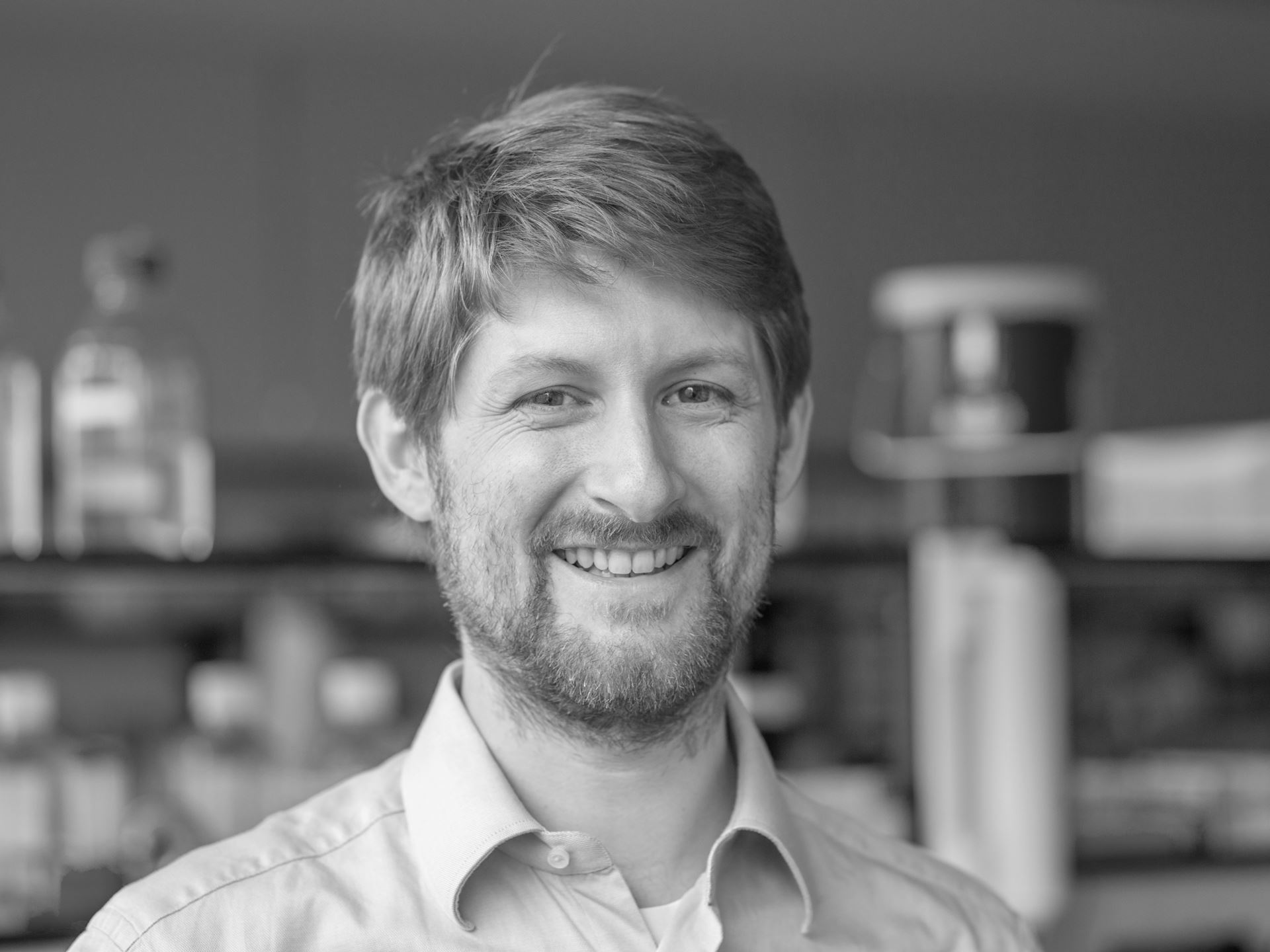 Dr. Bernd Bodenmiller performs pioneering development work in Clinical and Translational Proteomics for single cell proteomic analyses, one of the transforming technologies in the emerging field of “Precision Medicine”. Precision Medicine is one of the most disruptive and exciting developments in the field of clinical and translational proteomics and, in fact, in clinical research as a whole. Without innovative technologies to provide a sound experimental approach, Precision Medicine is just an empty term. Therefore, this new field of research necessitates approaches that enable a comprehensive analysis and visualization of the diseased tissue, ranging from molecules to networks and phenotypes, to cell-to cell interactions and to tissue morphology. Such analytical approaches will also support understanding of tissue biology, to define biomarkers and to identify novel routes of therapy. Dr. Bodenmiller and his group have pioneered the quantification of panels of proteins at the single cell level in cells in solution and in tissue based on mass cytometry, a technique that uses metals and inductively coupled plasma mass spectrometry to measure markers simultaneously with subcellular resolution. With the development of the most powerful targeted tissue imaging method in existence, called imaging mass cytometry (IMC), IMC currently enables to image 52 and soon >100 selected proteins, protein modifications and transcripts simultaneously with subcellular resolution in tissues. In other studies, the group of Dr. Bodenmiller showed how protein overexpression, a known driver of cancer initiation and progression, impacts single cell signaling networks. This work suggests why deregulation of the MAPK pathway renders it (unexpectedly) resistant to targeted inhibition. We applaud the efforts of Dr. Bodenmiller for his translational proteomic efforts to benefit human health, a well-deserved co-winner of the Clinical and Translational Proteomics award for 2018 Dr. Bernd Bodenmiller performs pioneering development work in Clinical and Translational Proteomics for single cell proteomic analyses, one of the transforming technologies in the emerging field of “Precision Medicine”. Precision Medicine is one of the most disruptive and exciting developments in the field of clinical and translational proteomics and, in fact, in clinical research as a whole. Without innovative technologies to provide a sound experimental approach, Precision Medicine is just an empty term. Therefore, this new field of research necessitates approaches that enable a comprehensive analysis and visualization of the diseased tissue, ranging from molecules to networks and phenotypes, to cell-to cell interactions and to tissue morphology. Such analytical approaches will also support understanding of tissue biology, to define biomarkers and to identify novel routes of therapy. Dr. Bodenmiller and his group have pioneered the quantification of panels of proteins at the single cell level in cells in solution and in tissue based on mass cytometry, a technique that uses metals and inductively coupled plasma mass spectrometry to measure markers simultaneously with subcellular resolution. With the development of the most powerful targeted tissue imaging method in existence, called imaging mass cytometry (IMC), IMC currently enables to image 52 and soon >100 selected proteins, protein modifications and transcripts simultaneously with subcellular resolution in tissues. In other studies, the group of Dr. Bodenmiller showed how protein overexpression, a known driver of cancer initiation and progression, impacts single cell signaling networks. This work suggests why deregulation of the MAPK pathway renders it (unexpectedly) resistant to targeted inhibition. We applaud the efforts of Dr. Bodenmiller for his translational proteomic efforts to benefit human health, a well-deserved co-winner of the Clinical and Translational Proteomics award for 2018
Peipei Ping
University of California Los Angeles, USA
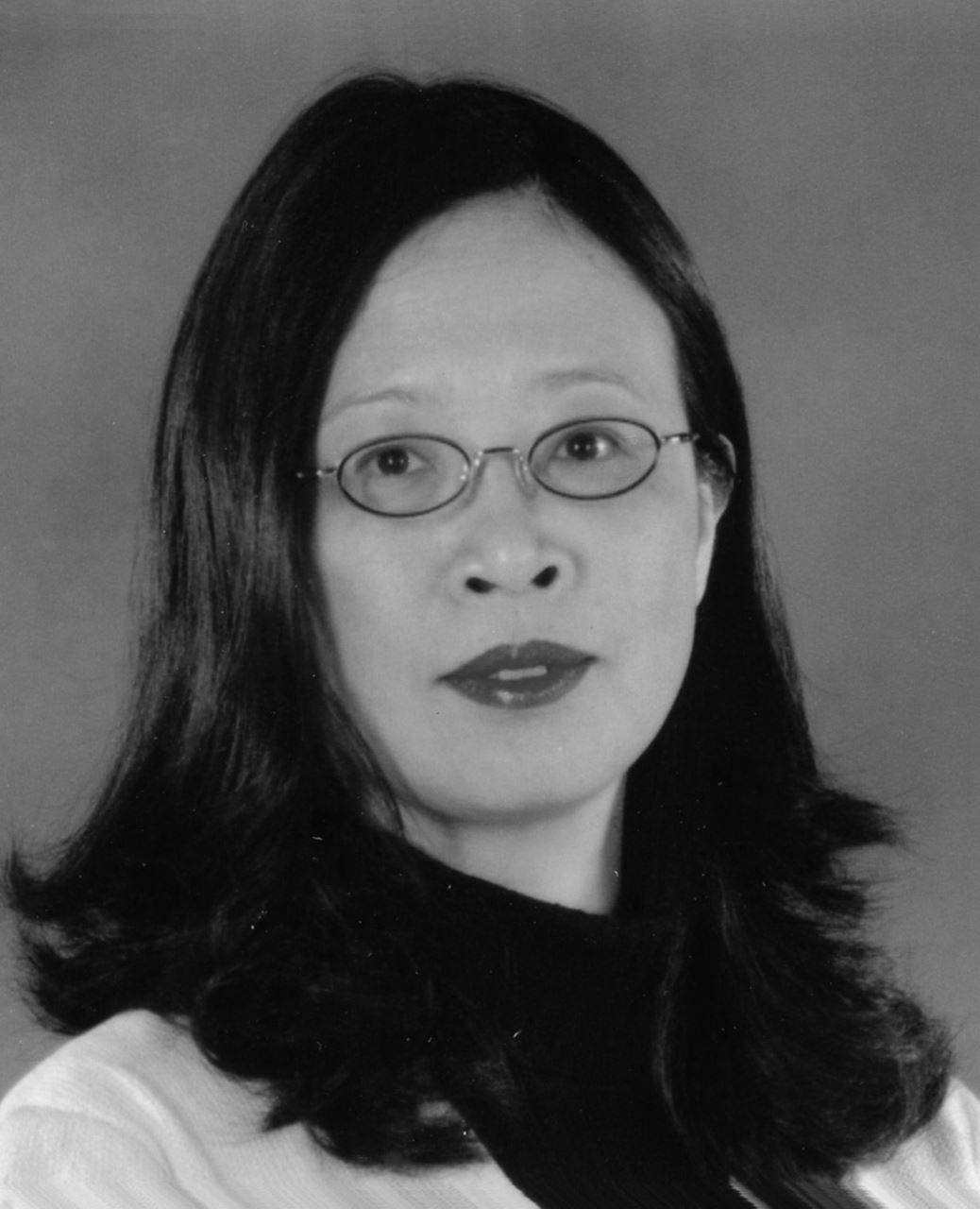 Dr. Peipei Ping is an extraordinary scientist who has made seminal contributions in the field of Clinical and Translational proteomics science. Dr. Ping is currently a Professor in the Departments of Physiology, Medicine, and Bioinformatics at UCLA. She was the recipient of HUPO Distinguished Service Award in 2013. Dr. Ping is a visionary leader who has made a profound impact in both proteomics and cardiac physiology communities with her keen leadership and devotion. She is internationally recognized for her expertise and achievements in proteomics, mitochondrial proteome biology, systems biology, and data science. Dr. Ping has a highly innovative research program and her lab has pioneered several major advances that have shifted paradigms in mitochondrial and protein degradation research. Notably, Dr. Ping has devoted her past decades to translational research, which has advanced the field of cardiology, her major focus. With the development of techniques and data resources specifically to tackle clinical aspects of cardiology research, Dr. Ping has advance proteomics clinically in this translational field. Her work across many aspects of translational research has provided new critical mechanistic insights in cardiac hypertrophy, a clear advancement of the field of cardiology. We congratulate Dr. Ping for her outstanding achievements culminating in co-sharing the Clinical and Translational Proteomics award for 2018. Dr. Peipei Ping is an extraordinary scientist who has made seminal contributions in the field of Clinical and Translational proteomics science. Dr. Ping is currently a Professor in the Departments of Physiology, Medicine, and Bioinformatics at UCLA. She was the recipient of HUPO Distinguished Service Award in 2013. Dr. Ping is a visionary leader who has made a profound impact in both proteomics and cardiac physiology communities with her keen leadership and devotion. She is internationally recognized for her expertise and achievements in proteomics, mitochondrial proteome biology, systems biology, and data science. Dr. Ping has a highly innovative research program and her lab has pioneered several major advances that have shifted paradigms in mitochondrial and protein degradation research. Notably, Dr. Ping has devoted her past decades to translational research, which has advanced the field of cardiology, her major focus. With the development of techniques and data resources specifically to tackle clinical aspects of cardiology research, Dr. Ping has advance proteomics clinically in this translational field. Her work across many aspects of translational research has provided new critical mechanistic insights in cardiac hypertrophy, a clear advancement of the field of cardiology. We congratulate Dr. Ping for her outstanding achievements culminating in co-sharing the Clinical and Translational Proteomics award for 2018.
Science and Technology Award
The Science and Technology Award recognizes an individual or team in private industry who played a key role in commercialization of a proteomics technology, product, or procedure. The emphasis for the award is on making the technology, product, or procedure widely available, which is different from the basic scientific invention.
(Sponsored by the HUPO Industrial Advisory Board)
John Syka, Jae Schwartz, Lee Earley and Christopher Mullen, Thermo-Fisher Scientific, USA
 Dr’s. Syka, Schwartz, Earley and Mullen have all played a significant role in the development and commercialization of Electron Transfer Dissociation on state-of-the-art mass spectrometers from its early development at the U. Virginia by Dr. Coon and Dr. Hunt. ETD is a nonergodic type of dissociation that enables sequencing of labile post translational modifications on proteins and peptides. The ease of use of the commercial ETD device developed by the team at Thermo-Fisher has enable many researchers from around the world to access this technology in a technically simple device and straightforward application simultaneously, or concurrently, with standard CID fragmentation. ETD continues to play significant roles in advancement of research in the detection of post-translational modifications such as phosphorylation and glycosylation. Additionally, ETD is a crucial fragmentation technology that enables rich fragment and subsequent sequence information in Middle down and Top-down proteomics. This significant innovation in the proteomics field continues to have wide acceptance and also provides a springboard for proteomics technology to impact the field of translational clinical proteomics. The HUPO members applaud the efforts of the industrial team from Thermo-Fisher of Dr’s. Syka, Schwartz, Earley and Mullen resulting in readily available novel ETD fragmentation technology for the 2018 HUPO award in Science and Technology. Dr’s. Syka, Schwartz, Earley and Mullen have all played a significant role in the development and commercialization of Electron Transfer Dissociation on state-of-the-art mass spectrometers from its early development at the U. Virginia by Dr. Coon and Dr. Hunt. ETD is a nonergodic type of dissociation that enables sequencing of labile post translational modifications on proteins and peptides. The ease of use of the commercial ETD device developed by the team at Thermo-Fisher has enable many researchers from around the world to access this technology in a technically simple device and straightforward application simultaneously, or concurrently, with standard CID fragmentation. ETD continues to play significant roles in advancement of research in the detection of post-translational modifications such as phosphorylation and glycosylation. Additionally, ETD is a crucial fragmentation technology that enables rich fragment and subsequent sequence information in Middle down and Top-down proteomics. This significant innovation in the proteomics field continues to have wide acceptance and also provides a springboard for proteomics technology to impact the field of translational clinical proteomics. The HUPO members applaud the efforts of the industrial team from Thermo-Fisher of Dr’s. Syka, Schwartz, Earley and Mullen resulting in readily available novel ETD fragmentation technology for the 2018 HUPO award in Science and Technology.
| | |


 Dr. Kusebauch, a native of Germany, has performed pioneering efforts for the establishment of the complete Human SRMAtlas. This achievement, led by Dr. Kusebauch and encompassing a large collaborative team from around the globe, provides a highly curated database of over 160,000 proteotypic peptide fragmentation spectra, their performance characteristics, selected reaction monitoring (SRM) assays, and a data-rich web based resource for the entire human proteome. This resource, generated on multiple mass spectrometry instruments, includes multiple fragmentation parameters and chromatographic traces for each peptide to enable any researcher to establish targeted identification and quantification of any accessible protein of the human proteome. This proteome-centric database is extensively integrated with bioinformatics knowledge bases and resources to provide an information rich resource for human proteome research. The SRMAtlas resource has extensive evidence of accessible assays for the human proteome covering proteins from all chromosomes with high quality quantitative SRM profiles to underpin HUPO HPP efforts in determining evidence for all proteins in the Human Proteome. This significant achievement provides a component of the MS Pillar substantiating the HPP efforts of HUPO and cuts across all other programs within HUPO (i.e., C-HPP, B/D-HPP etc.) making this resource also an achievement for HUPO. In addition, many biomarker evaluation projects worldwide have been accelerated with the use of this resource by providing readily available SRM assays, visual inspection of each assay, and assay parameter instrument files that are deployed in discovery and verification studies, ultimately fast tracking this process. She published this work in the journal Cell in 2016, and the SRMAtlas resource is freely available via the web. Dr. Kusebauch is a long-term HUPO member and active in proteomics for many years and these efforts by a young, talented female researcher being awarded is a demonstration of the talent in human proteome research that HUPO strives to support and recognize. The Human Proteome Organization congratulates Dr. Kusebauch, a worthy co-winner of the 2018 award for Discovery in Proteomics.
Dr. Kusebauch, a native of Germany, has performed pioneering efforts for the establishment of the complete Human SRMAtlas. This achievement, led by Dr. Kusebauch and encompassing a large collaborative team from around the globe, provides a highly curated database of over 160,000 proteotypic peptide fragmentation spectra, their performance characteristics, selected reaction monitoring (SRM) assays, and a data-rich web based resource for the entire human proteome. This resource, generated on multiple mass spectrometry instruments, includes multiple fragmentation parameters and chromatographic traces for each peptide to enable any researcher to establish targeted identification and quantification of any accessible protein of the human proteome. This proteome-centric database is extensively integrated with bioinformatics knowledge bases and resources to provide an information rich resource for human proteome research. The SRMAtlas resource has extensive evidence of accessible assays for the human proteome covering proteins from all chromosomes with high quality quantitative SRM profiles to underpin HUPO HPP efforts in determining evidence for all proteins in the Human Proteome. This significant achievement provides a component of the MS Pillar substantiating the HPP efforts of HUPO and cuts across all other programs within HUPO (i.e., C-HPP, B/D-HPP etc.) making this resource also an achievement for HUPO. In addition, many biomarker evaluation projects worldwide have been accelerated with the use of this resource by providing readily available SRM assays, visual inspection of each assay, and assay parameter instrument files that are deployed in discovery and verification studies, ultimately fast tracking this process. She published this work in the journal Cell in 2016, and the SRMAtlas resource is freely available via the web. Dr. Kusebauch is a long-term HUPO member and active in proteomics for many years and these efforts by a young, talented female researcher being awarded is a demonstration of the talent in human proteome research that HUPO strives to support and recognize. The Human Proteome Organization congratulates Dr. Kusebauch, a worthy co-winner of the 2018 award for Discovery in Proteomics. Dr. Coon has been at the forefront of discovery research and the tools he has created have gained wide use around the world. His research program is to facilitate, expedite, and comprehensively analyze proteins and metabolites by innovating new mass spectrometric technologies and apply these techniques to advance biomedical research. Dr. Coon has contributed heavily to aspects of proteomics and metabolomics research developing next generation instrumentation and instrument methods, proteomics workflows, novel isotopic labeling quantitative approaches, and associated software development that has influenced many labs around the globe. Specifically, these include; the development electron transfer dissociation (ETD), which is a complementary nature of ion fragmentation, where ETD provides new avenues for analyzing intact proteins, post-translational modifications, and structural aspects of the proteome. Dr. Coon started his independent program in 2005, shortly after co-developing ETD with Prof. Don Hunt (U. Virginia) and John Syka (Thermo-Fisher) and went on to apply the ETD technique to a number of biological questions with great success. Dr. Coon was also awarded the American Society for Mass Spectrometry’s Biemann Medal in 2012 for this work. Other innovations supporting discovery research include: describing Parallel Reaction Monitoring (PRM), a method for a high resolution/accurate mass analyzer to permit the parallel detection of all target product ions in one, concerted high resolution mass analysis extending the specificity of SRM analysis; the GC-Orbitrap construction for identification of unknown metabolites from high-resolution, high mass accuracy discovery GC-MS experiments; novel proteome quantification methodology using metabolic labeling called NeuCode; and multi-omic data analysis and visualization to understand metabolism. We applaud the efforts of new HUPO member Dr. Coon, a well-deserved co-winner of the Discovery in Proteomics award for 2018.
Dr. Coon has been at the forefront of discovery research and the tools he has created have gained wide use around the world. His research program is to facilitate, expedite, and comprehensively analyze proteins and metabolites by innovating new mass spectrometric technologies and apply these techniques to advance biomedical research. Dr. Coon has contributed heavily to aspects of proteomics and metabolomics research developing next generation instrumentation and instrument methods, proteomics workflows, novel isotopic labeling quantitative approaches, and associated software development that has influenced many labs around the globe. Specifically, these include; the development electron transfer dissociation (ETD), which is a complementary nature of ion fragmentation, where ETD provides new avenues for analyzing intact proteins, post-translational modifications, and structural aspects of the proteome. Dr. Coon started his independent program in 2005, shortly after co-developing ETD with Prof. Don Hunt (U. Virginia) and John Syka (Thermo-Fisher) and went on to apply the ETD technique to a number of biological questions with great success. Dr. Coon was also awarded the American Society for Mass Spectrometry’s Biemann Medal in 2012 for this work. Other innovations supporting discovery research include: describing Parallel Reaction Monitoring (PRM), a method for a high resolution/accurate mass analyzer to permit the parallel detection of all target product ions in one, concerted high resolution mass analysis extending the specificity of SRM analysis; the GC-Orbitrap construction for identification of unknown metabolites from high-resolution, high mass accuracy discovery GC-MS experiments; novel proteome quantification methodology using metabolic labeling called NeuCode; and multi-omic data analysis and visualization to understand metabolism. We applaud the efforts of new HUPO member Dr. Coon, a well-deserved co-winner of the Discovery in Proteomics award for 2018. Dr. Bernd Bodenmiller performs pioneering development work in Clinical and Translational Proteomics for single cell proteomic analyses, one of the transforming technologies in the emerging field of “Precision Medicine”. Precision Medicine is one of the most disruptive and exciting developments in the field of clinical and translational proteomics and, in fact, in clinical research as a whole. Without innovative technologies to provide a sound experimental approach, Precision Medicine is just an empty term. Therefore, this new field of research necessitates approaches that enable a comprehensive analysis and visualization of the diseased tissue, ranging from molecules to networks and phenotypes, to cell-to cell interactions and to tissue morphology. Such analytical approaches will also support understanding of tissue biology, to define biomarkers and to identify novel routes of therapy. Dr. Bodenmiller and his group have pioneered the quantification of panels of proteins at the single cell level in cells in solution and in tissue based on mass cytometry, a technique that uses metals and inductively coupled plasma mass spectrometry to measure markers simultaneously with subcellular resolution. With the development of the most powerful targeted tissue imaging method in existence, called imaging mass cytometry (IMC), IMC currently enables to image 52 and soon >100 selected proteins, protein modifications and transcripts simultaneously with subcellular resolution in tissues. In other studies, the group of Dr. Bodenmiller showed how protein overexpression, a known driver of cancer initiation and progression, impacts single cell signaling networks. This work suggests why deregulation of the MAPK pathway renders it (unexpectedly) resistant to targeted inhibition. We applaud the efforts of Dr. Bodenmiller for his translational proteomic efforts to benefit human health, a well-deserved co-winner of the Clinical and Translational Proteomics award for 2018
Dr. Bernd Bodenmiller performs pioneering development work in Clinical and Translational Proteomics for single cell proteomic analyses, one of the transforming technologies in the emerging field of “Precision Medicine”. Precision Medicine is one of the most disruptive and exciting developments in the field of clinical and translational proteomics and, in fact, in clinical research as a whole. Without innovative technologies to provide a sound experimental approach, Precision Medicine is just an empty term. Therefore, this new field of research necessitates approaches that enable a comprehensive analysis and visualization of the diseased tissue, ranging from molecules to networks and phenotypes, to cell-to cell interactions and to tissue morphology. Such analytical approaches will also support understanding of tissue biology, to define biomarkers and to identify novel routes of therapy. Dr. Bodenmiller and his group have pioneered the quantification of panels of proteins at the single cell level in cells in solution and in tissue based on mass cytometry, a technique that uses metals and inductively coupled plasma mass spectrometry to measure markers simultaneously with subcellular resolution. With the development of the most powerful targeted tissue imaging method in existence, called imaging mass cytometry (IMC), IMC currently enables to image 52 and soon >100 selected proteins, protein modifications and transcripts simultaneously with subcellular resolution in tissues. In other studies, the group of Dr. Bodenmiller showed how protein overexpression, a known driver of cancer initiation and progression, impacts single cell signaling networks. This work suggests why deregulation of the MAPK pathway renders it (unexpectedly) resistant to targeted inhibition. We applaud the efforts of Dr. Bodenmiller for his translational proteomic efforts to benefit human health, a well-deserved co-winner of the Clinical and Translational Proteomics award for 2018 Dr. Peipei Ping is an extraordinary scientist who has made seminal contributions in the field of Clinical and Translational proteomics science. Dr. Ping is currently a Professor in the Departments of Physiology, Medicine, and Bioinformatics at UCLA. She was the recipient of HUPO Distinguished Service Award in 2013. Dr. Ping is a visionary leader who has made a profound impact in both proteomics and cardiac physiology communities with her keen leadership and devotion. She is internationally recognized for her expertise and achievements in proteomics, mitochondrial proteome biology, systems biology, and data science. Dr. Ping has a highly innovative research program and her lab has pioneered several major advances that have shifted paradigms in mitochondrial and protein degradation research. Notably, Dr. Ping has devoted her past decades to translational research, which has advanced the field of cardiology, her major focus. With the development of techniques and data resources specifically to tackle clinical aspects of cardiology research, Dr. Ping has advance proteomics clinically in this translational field. Her work across many aspects of translational research has provided new critical mechanistic insights in cardiac hypertrophy, a clear advancement of the field of cardiology. We congratulate Dr. Ping for her outstanding achievements culminating in co-sharing the Clinical and Translational Proteomics award for 2018.
Dr. Peipei Ping is an extraordinary scientist who has made seminal contributions in the field of Clinical and Translational proteomics science. Dr. Ping is currently a Professor in the Departments of Physiology, Medicine, and Bioinformatics at UCLA. She was the recipient of HUPO Distinguished Service Award in 2013. Dr. Ping is a visionary leader who has made a profound impact in both proteomics and cardiac physiology communities with her keen leadership and devotion. She is internationally recognized for her expertise and achievements in proteomics, mitochondrial proteome biology, systems biology, and data science. Dr. Ping has a highly innovative research program and her lab has pioneered several major advances that have shifted paradigms in mitochondrial and protein degradation research. Notably, Dr. Ping has devoted her past decades to translational research, which has advanced the field of cardiology, her major focus. With the development of techniques and data resources specifically to tackle clinical aspects of cardiology research, Dr. Ping has advance proteomics clinically in this translational field. Her work across many aspects of translational research has provided new critical mechanistic insights in cardiac hypertrophy, a clear advancement of the field of cardiology. We congratulate Dr. Ping for her outstanding achievements culminating in co-sharing the Clinical and Translational Proteomics award for 2018. Dr’s. Syka, Schwartz, Earley and Mullen have all played a significant role in the development and commercialization of Electron Transfer Dissociation on state-of-the-art mass spectrometers from its early development at the U. Virginia by Dr. Coon and Dr. Hunt. ETD is a nonergodic type of dissociation that enables sequencing of labile post translational modifications on proteins and peptides. The ease of use of the commercial ETD device developed by the team at Thermo-Fisher has enable many researchers from around the world to access this technology in a technically simple device and straightforward application simultaneously, or concurrently, with standard CID fragmentation. ETD continues to play significant roles in advancement of research in the detection of post-translational modifications such as phosphorylation and glycosylation. Additionally, ETD is a crucial fragmentation technology that enables rich fragment and subsequent sequence information in Middle down and Top-down proteomics. This significant innovation in the proteomics field continues to have wide acceptance and also provides a springboard for proteomics technology to impact the field of translational clinical proteomics. The HUPO members applaud the efforts of the industrial team from Thermo-Fisher of Dr’s. Syka, Schwartz, Earley and Mullen resulting in readily available novel ETD fragmentation technology for the 2018 HUPO award in Science and Technology.
Dr’s. Syka, Schwartz, Earley and Mullen have all played a significant role in the development and commercialization of Electron Transfer Dissociation on state-of-the-art mass spectrometers from its early development at the U. Virginia by Dr. Coon and Dr. Hunt. ETD is a nonergodic type of dissociation that enables sequencing of labile post translational modifications on proteins and peptides. The ease of use of the commercial ETD device developed by the team at Thermo-Fisher has enable many researchers from around the world to access this technology in a technically simple device and straightforward application simultaneously, or concurrently, with standard CID fragmentation. ETD continues to play significant roles in advancement of research in the detection of post-translational modifications such as phosphorylation and glycosylation. Additionally, ETD is a crucial fragmentation technology that enables rich fragment and subsequent sequence information in Middle down and Top-down proteomics. This significant innovation in the proteomics field continues to have wide acceptance and also provides a springboard for proteomics technology to impact the field of translational clinical proteomics. The HUPO members applaud the efforts of the industrial team from Thermo-Fisher of Dr’s. Syka, Schwartz, Earley and Mullen resulting in readily available novel ETD fragmentation technology for the 2018 HUPO award in Science and Technology.
.png)


